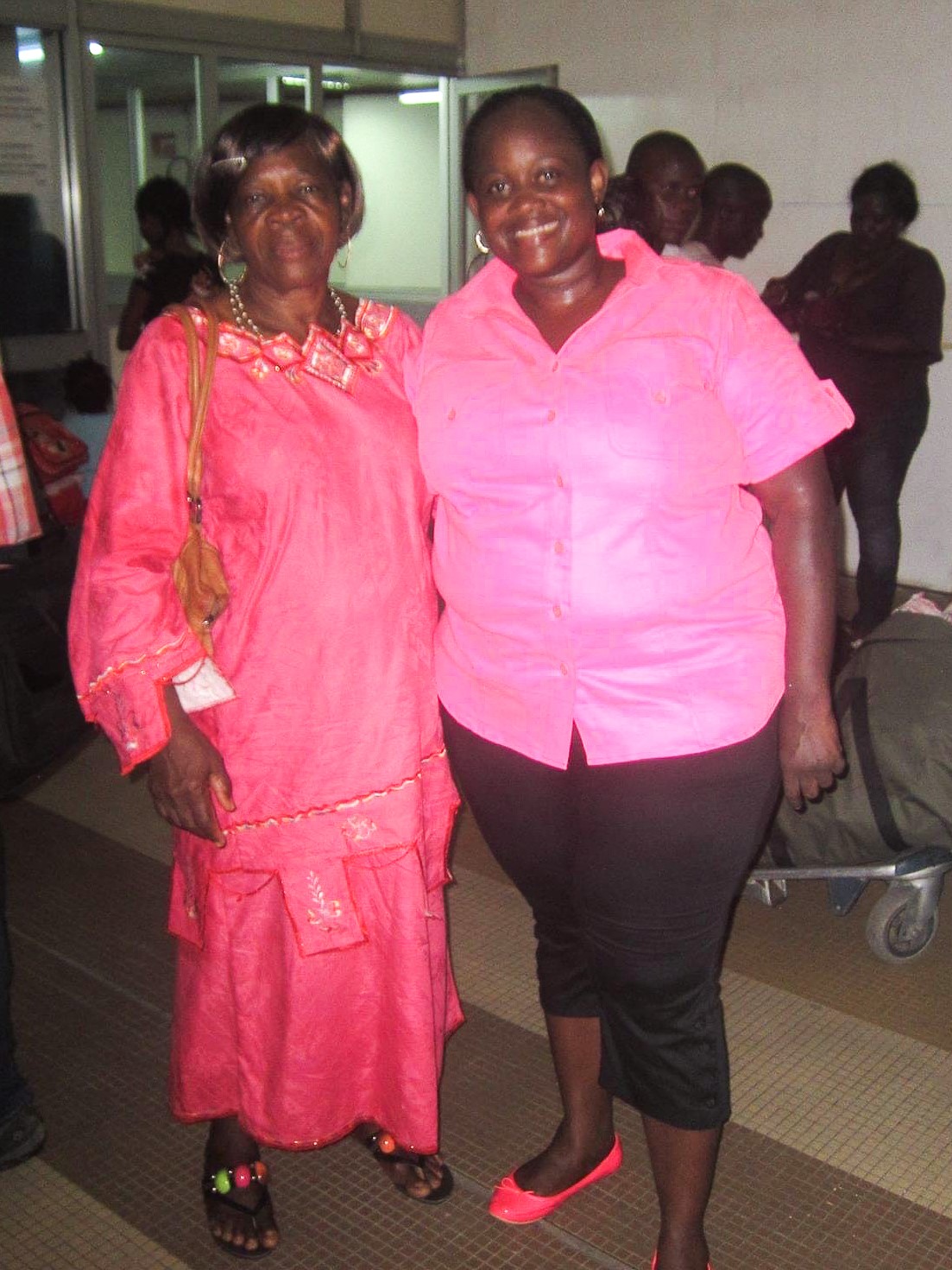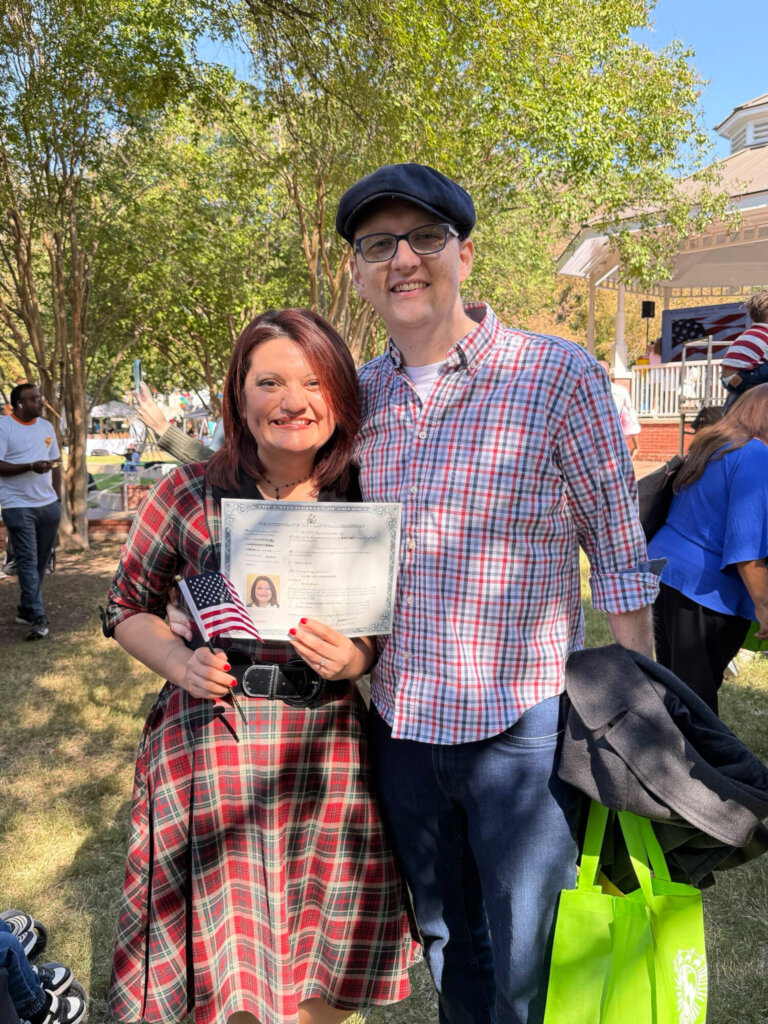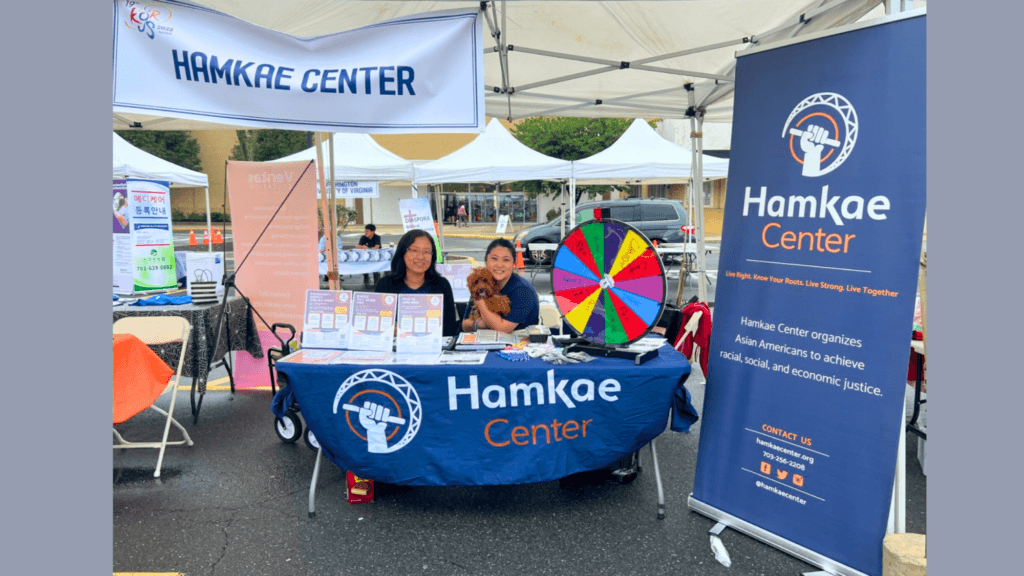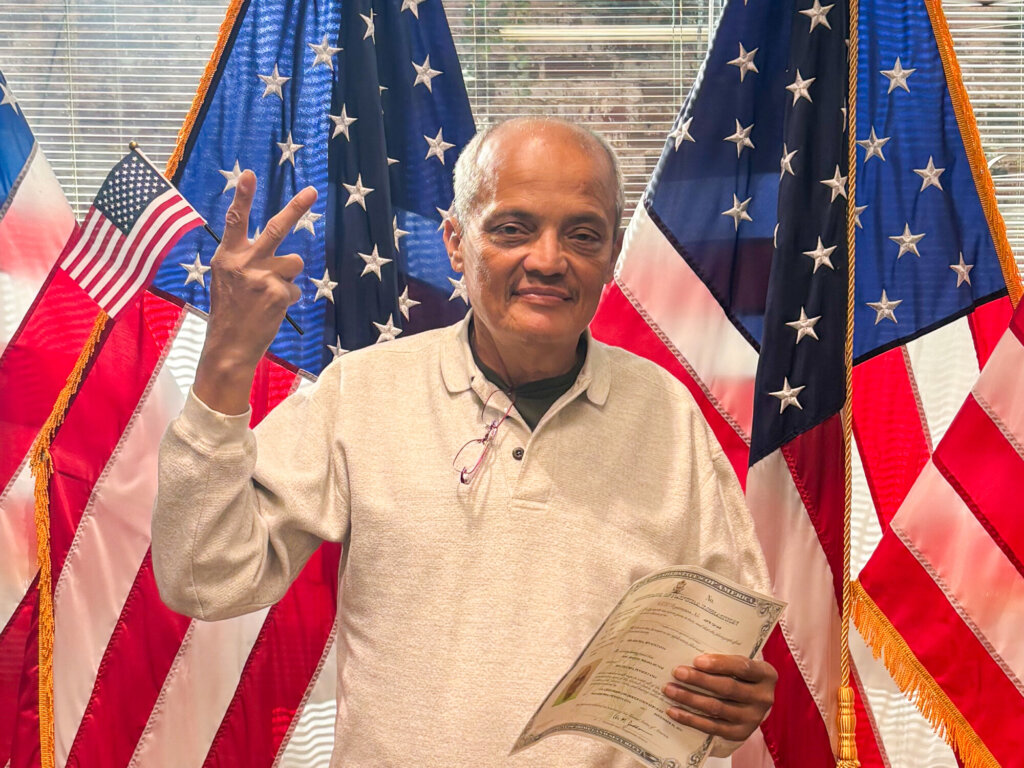Ruth Njike: I have a voice, I have a prosthesis, I’m learning to drive, and I’m excited to vote.

Explore more
(Photo courtesy of Ruth Njike)
I came to the United States in October, 2013 from Douala,
Cameroon, the country’s economic capital. I was a winner in the diversity visa
lottery. I played the diversity visa lottery every year. I’d start in October
and then I’d get the result the next year in May. In May 2012 it was the fourth
or fifth time I had tried, and I didn’t win. But when I went to enter again in
the fall, the guy told me that I had already won a visa. I didn’t realize there
were two phases, so I didn’t believe him. I told him, “No, that’s not right.”
The guy said, “Yes it is,” and he printed the results to show me. Because I still
wasn’t sure, I took the paper to the U.S. Consulate in Douala to double-check.
I showed the paper to the guy at the front desk. He asked me, “Is this your
name?” I said yes. “Is this your date of birth?” I said yes. Then he told me,
“You won the lottery!”
I was really excited and really happy, but I was worried
too. I didn’t know anybody in the United States. I didn’t know how much money I
needed. I come from a very poor family. You need money in order to do the
paperwork and to get your plane tickets. I spread the news to my family who
were so, so happy. Then I prayed. In Cameroon when you have an opportunity to
travel people will sell the house in order to support you. They think that when
you get to the U.S. or Europe you are going to have a lot of money and you can
take care of your family, because life in Cameroon is not easy. When you leave,
you have all of the family counting on you.
I remembered one old friend who went to the United States.
We were no longer close, and I didn’t know if he would welcome me. I sent him
an email saying that I won the diversity visa lottery, could I have his
address? Could I live in his house for a short time while I look for a job and
get my own home? My friend was very happy because he’s a good person, but he said,
“I’m just going to give you my address, but you can’t live in my house. I’m
married and I live with my wife and my parents and we don’t have a lot of
space. But I will look for a place for you to live.” I thought getting a place
to live in advance was really good because you need an address in order to
receive your green card and all of your paperwork.
Next I had to look for money. I had friends and sisters in
Paris who helped me. I sent $500 to the U.S. It was difficult because there was
a fee to send it and even that was a lot. My friend found me a room in
somebody’s house in Silver Spring, Maryland, and I paid two months in advance.
He picked me up at the airport and brought me to my new house to leave my
stuff, then he took me to dinner. On my first day in this country I slept alone
in my room. I was so scared.
It wasn’t easy for me to find a job at first. I have a
disability that was a bit of a barrier. I had cancer 20 years ago and doctors
removed my right arm. I learned how to write with my left arm. This is just a
parenthesis to explain that life in the U.S. wasn’t easy at first. It also
wasn’t easy to live in that house. I stayed for two months but people were
coming and going all the time and playing music and drinking alcohol. When my
friend’s wife found out how stressed I was living there she said, “Why don’t
you live with my mom? She lives in an apartment and has an empty room now.” I
was so happy. I didn’t want to worry about where I lived. I wanted to
concentrate on improving my English. I wanted to go back to school. Even though
we moved to another apartment, I am still living with her mom.
I took English classes and I applied for many, many jobs.
Finally, I got a job as a cashier at McDonald’s. The manager was Cameroonian.
He didn’t tell me at the beginning, but people questioned whether I could
handle being a cashier with one hand. He convinced them to give me a chance.
They were so surprised when it turned out I was really good. I worked at
McDonald’s for three years, doing my English classes at the same time and
enrolling at Montgomery College. Luckily, I was hired as a student assistant
and when I got a second job at school, I left the McDonald’s job.
At the Workforce of Wheaton, Maryland, I saw flyers saying that you can get help applying for U.S. citizenship. I took a flyer, called the number, and left a message. I told them I really need this because I think this is my time and I’m ready to apply. Miss Agatha (Agatha Schmaedick Tan) from APALRC (Asian Pacific American Legal Resource Center), called me back. She’s the best. She’s really an amazing person! She told me there was going to be a workshop at the Long Branch Library in Silver Spring. I went with one of my friends Larissa, and we began our applications that day. But it was very busy and we couldn’t complete our forms, so Miss Agatha made another appointment with us. What really surprised me was that after we completed the application together, Miss Agatha said she would send my documents in for me. She also gave me the 100 questions to practice for the citizenship test and told me that if I wanted, I could return to her office a week before my interview and we could practice together. The best thing is I got a fee waiver. Miss Agatha put everything together and told me that I might be eligible.
I took my citizenship oath on October 9, 2019. I invited
Larissa and some other friends too. It was like a dream become a reality. I
thought, “Wow, I did it!” So now I’m a U.S. citizen. I had been a little bit
scared because I don’t have a lot of income, and I’m not working right now. I
have two semesters left towards my degree in health information management at
Coppin State University. I’m hoping that citizenship is going to help me to get
a government job, which you can get when you are a citizen. My family was even
connected during the oath ceremony. One of my friends was doing the video and
everyone in Cameroon was watching over the internet. My father especially was
so happy, and I was too. It was a very big accomplishment.
I’ve stayed in touch with Miss Agatha and brought many
people who were trying to become citizens to get help with the application
there. I even went looking for people who were ready to apply. I posted on
social media and on Instagram. I used to volunteer at the Tacoma Park Library,
I spoke with Miss Agatha and suggested that we organize something there. I told
my contact at the Tacoma Park housing development that we need a room because
we want to do a citizenship workshop and I have a lot of friends I want to
invite. She was very happy to help. Then Miss Agatha asked me if I wanted to
help with the French speaking people at the workshop. I was so pleased when she
added my name as a volunteer. A lot of people came that day. In the end, we
helped around 30 people.
I feel like an American now. I have a voice, I can speak
out. I don’t need a visa anymore. I’m free to apply for any government job, and
even though I haven’t found one yet, I’m pretty sure I’m going to get one soon,
by the grace of God. I also have a prosthesis now. I couldn’t imagine in my
life that I would have a prosthesis because they can cost as much as $30,000.
But my health insurance paid for half and DORS (Maryland Division of
Rehabilitation Services) paid the other part. And now I’m even working with
DORS to learn how to drive with one hand. Can you imagine? I’m excited to vote.
I haven’t voted in a national election yet, but I registered. I even applied to
work at the polls during the election. I called Miss Agatha to tell her,
because that’s the point: to express ourselves and to participate in democracy.



